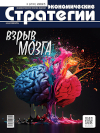Analyzing Specific Features of Economic Activity of Enterprises of the Russian Military-Industrial Complex
DOI: 10.33917/es-2.200.2025.62-69
The article examines key features of the economic activity of the Russian military-industrial complex (MIC). At the same time, it is substantiated that terms and concepts used in modern economic theory to characterize the activities of the defence industrial enterprises do not fully reflect the essence of the economic processes taking place in the MIC.
References:
1. Shcheglov D.K., Pilikov N.A., Timofeev V.I. Kontseptual’nye osnovy tsifrovoy transformatsii organizatsiy oboronno-promyshlennogo kompleksa [Conceptual Foundations of Digital Transformation of Defense Industry Organizations]. Avtomatizatsiya v promyshlennosti, 2021, no 2, pp. 13–23.
2. Plotnikov V.A., Kharlamov A.V. Rossiyskiy oboronno-promyshlennyy kompleks kak faktor obespecheniya natsional’noy bezopasnosti i ustoychivogo sotsial’noekonomicheskogo razvitiya [The Russian Military-industrial Complex as a Factor in Ensuring National Security and Sustainable Socio-economic Development]. Ekonomika i upravlenie, 2017, no 11, pp. 53–60.
3. Shapoval E.V., Shelest M.V. Oboronno-promyshlennyy kompleks v sovremennoy ekonomike Rossii [The Military-industrial Complex in the Modern Economy of Russia]. Vestnik Gosudarstvennogo universiteta upravleniya, 2015, no 1, pp. 116–122.
4. Ovchinnikova A.V., Matveev V.V. Razvitie oboronno-promyshlennogo kompleksa Rossii i obespechenie konkurentosposobnosti natsional’noy ekonomiki [Development of the Russian Military-industrial Complex and Ensuring the Competitiveness of the National Economy]. Vestnik Yuzhno-Ural’skogo gosudarstvennogo universiteta, Seriya: Ekonomika i menedzhment, 2021, no 15(2), pp. 99–105.
5. Kazantsev S.V. Znachenie oboronno-promyshlennogo kompleksa dlya pod”ema rossiyskoy ekonomiki [The Importance of the Military-Industrial Complex for the Boom of the Russian Economy]. Finansovyy zhurnal, 2014, no 1, pp. 45–52.
6. Shcherbakov G.V. Tochki Laffera, zona fiskal’nykh protivorechiy i stepen’ soglasiya nalogoplatel’shchikov [Laffer Points, the Zone of Fiscal Contradictions and the Degree of Taxpayer Agreement]. Vestnik Rossiyskogo universiteta druzhby narodov, Seriya: Ekonomika, 2019, no 27(1), pp. 49–62.
7. Polozhikhina M.A. Evolyutsiya obshchestva potrebleniya: ot Zhaklin Kennedi do Grety Tunberg [The Evolution of Consumer Society: From Jacqueline Kennedy to Greta Thunberg]. Sotsial’nye novatsii i sotsial’nye nauki, 2020, no 2(2), pp. 7–36.
8. Byatets I.V. Vliyanie riska na pribyl’ predpriyatiya [The Impact of Risk on Enterprise Profits]. Vestnik Udmurtskogo universiteta, Seriya: Ekonomika i pravo, 2011, no 1, pp. 28–30.
9. Eroshin S.E. Parametricheskiy monitoring predpriyatiy oboronno-promyshlennykh ob”edineniy: Avtoref. dis…. d-ra ekon. nauk: 5.2.3 [Parametric Monitoring of Enterprises of Defense-industrial Associations: Abstract of dis…. Doctor of Economics: 5.2.3]. Moskovskiy gosudarstvennyy universitet. Moscow, 2023, 49 p.
10. Shcheglov D.K., Saybel’ A.G. Formalizovannyy podkhod k prognozirovaniyu srokov i stoimosti razrabotki voenno-tekhnicheskikh system [A Formalized Approach to Forecasting the Timing and Cost of Developing Military-technical Systems]. Oboronnyy kompleks — nauchno-tekhnicheskomu progressu Rossii, 2022, no 3(155), pp. 33–44.













